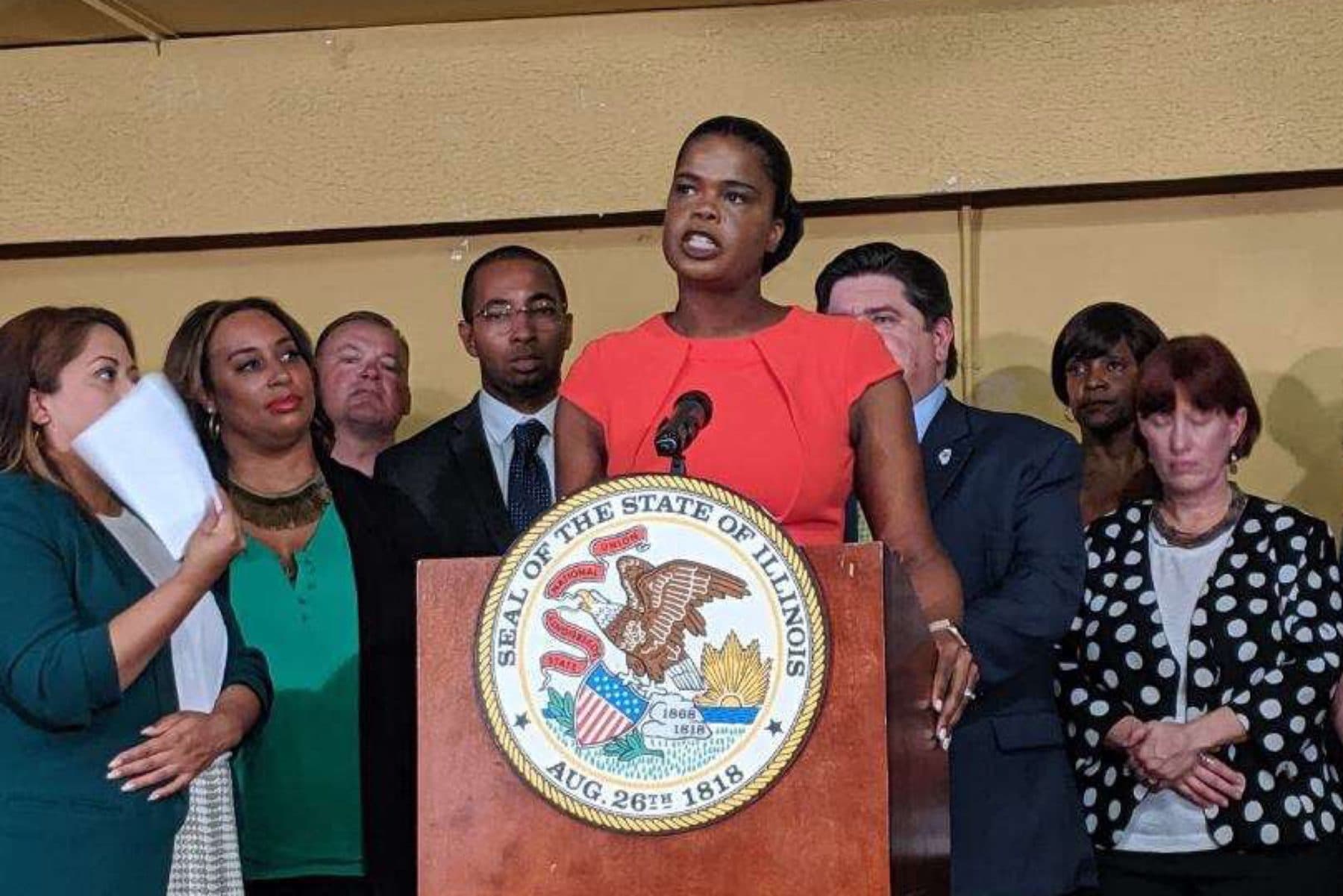Dubbed a “progressive prosecutor” by many in the media, Cook County State’s Attorney Kim Foxx is delivering on her campaign promise to transform how her Chicago office—the second largest in the country—prosecutes felony-charged defendants, according to a new report by Chicago-based advocacy organizations. But the report also found that since taking office in December 2016, Foxx has failed to upend, as promised, office policies that drive the War on Drugs.
Published on July 30, an analysis by The People’s Lobby, Reclaim Chicago and Chicago Appleseed Fund found that Foxx’s office cut the number of incarceration sentences by 19 percent in 2018 compared with the year prior. Reverend David Thornton of The People’s Lobby explained that “The vast majority of people given sentences of incarceration in Cook County are Black and Latinx, so decreasing incarceration is a significant step in addressing the racism of the criminal justice system in Cook County.”
The organizations also found that Foxx’s office referred a quarter more people charged with felonies—including drug cases—to diversion programs, including substance use disorder treatment, in her first two years compared with the two years prior, under predecessor Anita Alvarez.
The increased diversion referrals could be a reflection of Foxx’s expressed commitment to “treat[ing] the use of and addiction to drugs through the public health system rather than the criminal justice system,” as she said in in response to a candidate questionnaire.
But The People’s Lobby sees involuntary treatment-based diversion as “coercive,” continuing as it does to rely on law enforcement to mediate a public health issue. Other critics of diversion programs, especially those that divert defendants prior to arraignment, point out that they can negatively impact a person’s rights and access to legal counsel.
Although Foxx campaigned on ending, or at least scaling down, the drug war, her first year as state’s attorney brought an increase in felony drug charges in Cook County, according to a past People’s Lobby report. Her office continued to allow police to directly bring these charges, instead of having them considered by the State’s Attorney’s Office Felony Review. The advocates have urged Foxx to consider using “prosecutorial discretion to decline to charge some drug possession and sales cases.”
“Despite this commitment to promoting a public health approach to drug use and addiction and public criticism of the War on Drugs as a war on poor people and African American and Latino communities, Foxx’s office has not yet taken steps to change any office policies related to drug possession, use, or sales,” wrote The People’s Lobby.
Although Foxx has made unprecedented forward steps—like making her prosecutorial data available to the public—she remains tasked with managing the disproportionate criminalization of Black people. The Chicago Police Department increased the number of “drug abuse violation arrests” by 20 percent between 2017 and 2018 and the Cook County Jail’s daily population remains nearly three-quarters African American.
Amidst all this, Foxx has “slightly increased,” as the organizations described, the number of felony charges filed in recent years.
Photograph of Kim Foxx via Twitter





Show Comments